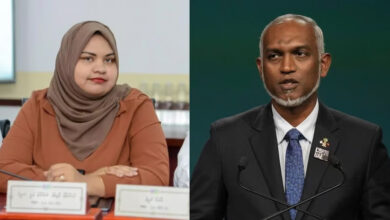All that Glitters: Bhutanese Workers’ Plight in the Middle East

By KP Sharma
Bhutanese working in the Middle East are dissatisfied with jobs, salaries and accommodation affecting their wellbeing, according to a survey report published by the Ministry of Labour and Employment (MoICE).
The Overseas Employment Program Monitoring Survey Report 2023, based on the experiences of nearly 900 Bhutanese in Kuwait, Qatar, Bahrain, and the UAE, found widespread concerns over salaries, accommodation and other benefits.
As per the report, financial hardship at home was the primary driver for seeking overseas employment, with 42 percent of respondents citing it as the main reason. However, the promise of higher wages appears not to be fully realised, with many reporting a significant disparity between their current income and expectations.
The average monthly salary in Bhutan falls between Nu 5,000 and Nu 15,000 while those working overseas reported an average income between Nu 30,000 and Nu 40,000. About 52.7 percent of the respondents stated that even this amount was insufficient, particularly considering the high cost of living in the Middle East.
The report also highlighted concerns regarding specific aspects of employment. Salary increments, overtime payments, and timely disbursement of incentives were major sticking points, with 18.6 percent of respondents reporting issues with late or non-payment.
The survey also included recommendations for improvement based on worker feedback such as increasing salaries, ensuring timely payments, and offering medical insurance were all seen as crucial steps.
In addition, some respondents called for improved living conditions through increased accommodation allowances. Looking beyond immediate working conditions, the report suggests the government could play a role in supporting returning migrant workers.
Entrepreneurial training and skilling programmes were identified as valuable tools, along with initiatives to assist with business development upon returning to Bhutan.
Establishing dedicated support structures for overseas entrepreneurs with experience and innovative ideas was seen as a way to leverage the skills and knowledge gained abroad. For instance, upon returning home, if workers have a business idea and relevant experience they want to use in Bhutan, they need government assistance to navigate the process of securing permits and loans.
Starting a business solely with personal funds is difficult, and access to government support would be helpful for these returning entrepreneurs with innovative ideas and valuable experience.
Regarding employment channels, the government, through MoICE, was the most common channel for securing employment for those surveyed.
Similarly, private agencies also played a pivotal role, with Wangchuk Overseas Employment Agency and Rumi Overseas Employment Agent handling a substantial number of placements of 27.5 percent and 12.7 percent.
The report highlights the need for collaboration between the government and these agencies to ensure the welfare of Bhutanese workers abroad.
These findings come amidst a growing trend of Bhutanese youth seeking employment opportunities in the Middle East. With limited job prospects and poor wages domestically, overseas work appears as an attractive option, despite the challenges identified in the report.




